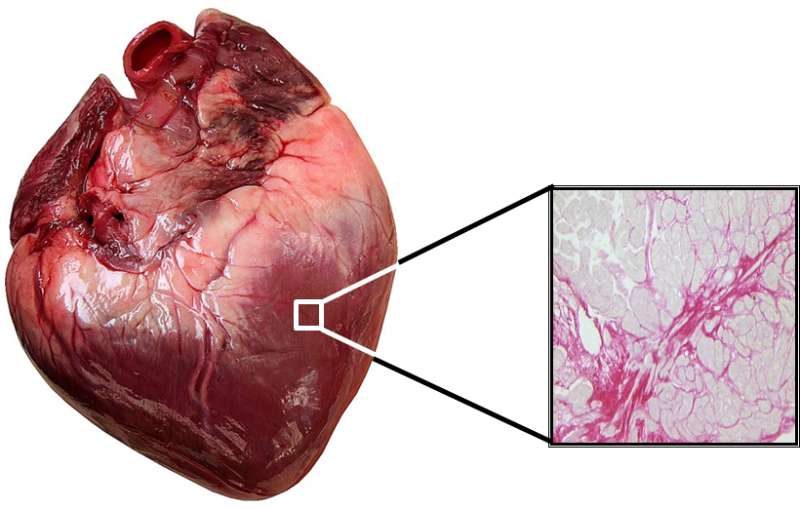Study opens the door to personalized treatment for heart failure

An international multicenter study has identified a molecule that will open the door to personalized treatment for heart failure. The results of this work, with the participation of researchers from Indiana University and Stanford University (U.S.), the Charité University Medicine Berlin (Germany) and the University of Navarra (Spain), have been published in the latest issue of the scientific journal Nature Communications.
Heart failure is characterized by a malfunction of the heart in supplying the body with enough blood for proper organ function. In Spain, over 3 percent of the adult population presents with heart failure, but this figure is on the rise due to the aging population and the increase in the prevalence of diseases producing heart failure. "This is a great challenge for society—it is the leading reason for hospital admission of over-65s, the cause of 3 percent of all admissions, and absorbs 2.5 percent of the global health care budget," explained Dr. Javier Díez of the Clínica Universidad de Navarra, one of the authors of this work. The researcher says, "In view of this challenge, on the one hand, existing health care resources must be optimized in order to reduce the number of new cases and improve the prognosis and quality of life of heart failure patients, and, on the other, to research the mechanisms that produce heart failure in order to develop treatments that are more effective and safe than the ones that exist at present."
In the article, the researchers show that an excess of a molecule lysyl oxidase-like 2 produces fibrosis of the cardiac muscle, which impedes its normal function and stimulates the development of heart failure. Moreover, the experimental studies confirm that the elimination of this excess repairs the fibrosis and alleviates the heart function, thus preventing onset and progress of heart failure. "These results suggest that the lysyl oxidase-like 2 enzyme may be a target for the treatment of this disease," said Dr. Díez.
Pioneers in biomarker research
Once the activity of the enzyme has been described, the next step is to develop tests for precise diagnosis of patients with heart disease who present an excess of this molecule in their hearts. These tests will be carried out at CIMA and the Clínica Universidad de Navarra by the BIOMARCS research group, a pioneering team in the research of cardiac biomarkers for heart failure patients.
Additionally, drugs to inhibit this molecule for the personalized treatment of each patient will be developed. As Dr. Díez states, "This strategy may be particularly valuable in the 50 percent of heart failure cases for which there is no effective treatment at present. In these patients, the change in the performance of the heart is closely related to fibrosis of the cardiac muscle, and so the suppression of this enzyme is proposed as a very promising therapeutic alternative."
More information: Jin Yang et al, Targeting LOXL2 for cardiac interstitial fibrosis and heart failure treatment, Nature Communications (2016). DOI: 10.1038/ncomms13710

















